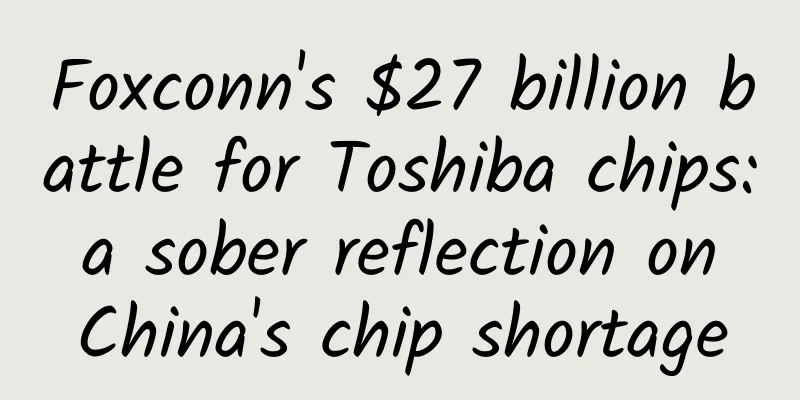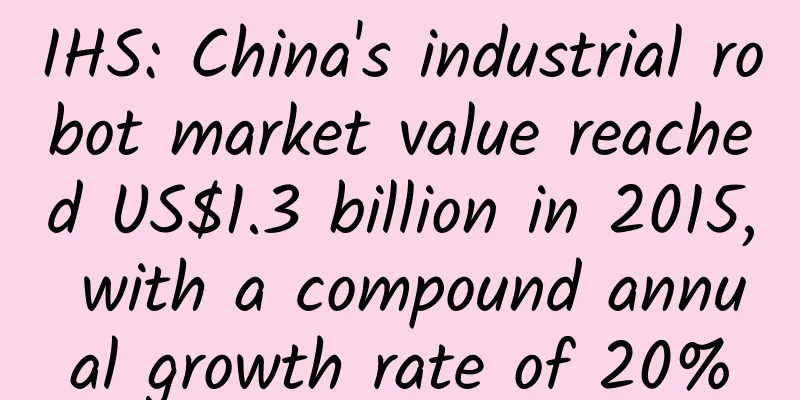It’s hard to eliminate fake goods: Is the third-party platform model a fatal flaw?

|
While the U.S. stock market is in a bull market, Chinese e-commerce stocks have collectively collapsed. Alibaba's stock price fell by nearly 8.78% on January 29, Beijing time, and its market value shrank by nearly US$10 billion. Other e-commerce stocks were not spared, with JD.com , Jumei , Vipshop , and Dangdang all falling by 5.04%, 4.69%, 4.27%, and 1.72% respectively. This is another collective decline in Chinese concept stocks following the confidence crisis in 2011. Compared with the past, e-commerce companies have made greater efforts to combat counterfeit goods, including random inspections, big data monitoring, and mystery buyers. The effectiveness still needs to be further tested, but there is no doubt that the rampant counterfeiting on e-commerce platforms is not just the responsibility of the e-commerce platforms themselves. Brand owners and relevant government departments must all work together to combat counterfeiting and curb counterfeit goods at the source. Alibaba's big data detection has little effect, JD.com fights back As a representative of the third-party platform model, Taobao currently has more than 6 million online merchants. According to the reply received by the reporter of Financial Weekly from Taobao, Alibaba's main measure to combat counterfeit goods is currently big data anti-counterfeiting. Through intelligent image recognition, data capture and cross-analysis, intelligent tracking and other technologies, counterfeit goods are removed from the 1 billion online products. Secondly, Alibaba has set up a security department with nearly 2,000 people, and cooperates and links with government departments, intellectual property rights holders and ordinary consumers. For example, in terms of linkage with intellectual property rights holders, Alibaba has established an online intellectual property rights protection channel IPR complaint platform, which has been registered and used by more than 56,000 rights holders. It is reported that in the first three quarters of 2014, the system received nearly 540,000 complaints from various rights holders and deleted nearly 6 million products suspected of infringing trademark rights, copyrights and patent rights. In addition, Alibaba has organized more than 5,400 volunteers to be responsible for daily online inspections and random checks. As of November 31, 2014, Alibaba has carried out 62,783 purchases and appraisals through "mysterious buyers", involving 28 industries such as food, health products, clothing, shoes, and small appliances. As an e-commerce platform that mainly operates its own business, JD.com has also introduced corresponding regulatory measures in terms of its entry and operation system in addition to daily spot checks. On the one hand, during the entry review process, JD.com further requires the seller's sales background and purchase channels to be reviewed, and merchants with incomplete qualifications or not fully meeting JD.com's management standards will be cleared out. On the other hand, JD.com has introduced more severe punishment measures for sellers selling counterfeit goods than before. According to the "JD.com Open Platform Seller Points Management Principles", sellers who sell counterfeit goods must pay a penalty of 1 million yuan or a penalty of 10 times the total accumulated sales of the store. Dangdang said that in terms of entry threshold, the company requires merchants to provide proof of legal person qualifications, product qualification, etc. All qualifications are indispensable, which reduces the probability of counterfeit goods from the perspective of entry requirements. The reporter from Financial Weekly tried to contact the relevant person in charge of Jumei Youpin, but as of press time, no relevant response has been received from the company. E-commerce experts questioned whether the governance measures introduced by the above-mentioned e-commerce platforms are feasible. Lu Zhenwang, founder of Wanqing Consulting, told reporters that "the current testing is nothing more than data testing, which obtains relevant evidence through product descriptions (products themselves and prices), identification, and user complaints, but this only solves half of the problem, such as discovering products with large price differences from genuine products. However, there is no supervision in the delivery process, and e-commerce platforms cannot monitor whether sellers are sending fakes." The third-party platform model is a flaw When it comes to defining “fakes”, there is a lot of controversy regarding the identification of “non-genuine products”. Qiu Xiang, a partner at Grandall Law Firm who has long helped domestic big brands with rights protection lawsuits, told reporters that based on his past contacts with Taobao, Taobao believes that sales through unauthorized channels are allowed. "They only accept complaints about pure counterfeit or fake goods. If the product is indeed produced by a brand manufacturer, but the sales channel is different, they usually believe that there is no legal basis for requesting the removal of the merchant link." It is understood that since the concept of "non-genuine" is still relatively vague, although the concept may be used at the policy and manufacturer levels, there is no relevant definition at the legal and regulatory level. Generally speaking, fake goods in non-genuine products usually refer to counterfeit and inferior goods, which will infringe the manufacturer's trademark, intellectual property rights, reputation, etc. Goods sold through non-normal sales channels are goods that are not sold through authorized channels or authorized areas. In the eyes of brand manufacturers, this may disrupt the brand manufacturers' sales policies and channels. In many foreign regions, such goods are also considered contraband. Therefore, compared with self-operated e-commerce, the probability of counterfeit goods existing in e-commerce that adopts the third-party platform model will be higher. E-commerce expert Zhuang Shuai analyzed that "generally speaking, self-operated e-commerce has fewer problems in this regard, while the non-self-operated parts of Tmall, JD.com, No.1 Store, and Jumei Youpin may have problems with counterfeit goods. So I think it is mainly because of the flaws in the business model." It further explained that, on the one hand, technical means cannot monitor the problem of counterfeit goods, because if the storage and distribution of the back-end supply chain are not controlled, it is difficult to eliminate counterfeit goods, which is a global problem. For example, the Taobao platform is mainly composed of self-employed online stores, a large part of which are not authorized by brand owners, and it is difficult to avoid the counterfeit crisis. On the other hand, China's current legal environment imposes very light penalties on the production and sale of counterfeit goods, and there are problems with lax and ineffective law enforcement. In foreign countries, penalties for counterfeit goods are very severe. This is one of the reasons why eBay, although it also adopts the third-party platform model, rarely has counterfeit goods. In addition, consumers have limited ability to identify counterfeit goods. It is understood that the counterfeit goods on e-commerce platforms are mainly concentrated in categories such as cosmetics, luggage, and sports shoes, and most of them are foreign brands, which is the same as the categories of counterfeit goods currently sold offline. With billions of goods being sold on online platforms, detecting counterfeits through sampling is less effective, and truly eliminating the source is the key to solving the problem. Lu Zhenwang analyzed, "Now the sellers of counterfeit goods are only the end of the supply chain, but the root cause has not been solved. Above the sellers are usually large wholesalers, and above them are the manufacturers of counterfeit goods. If no measures are taken against the manufacturers, this kind of random inspection is actually worthless. Even if the seller is punished this time, he will sell to other sellers in the future. Therefore, the State Administration for Industry and Commerce must carry out a nationwide campaign. The key is to find the source of the counterfeit goods sold online by recovering them." As a winner of Toutiao's Qingyun Plan and Baijiahao's Bai+ Plan, the 2019 Baidu Digital Author of the Year, the Baijiahao's Most Popular Author in the Technology Field, the 2019 Sogou Technology and Culture Author, and the 2021 Baijiahao Quarterly Influential Creator, he has won many awards, including the 2013 Sohu Best Industry Media Person, the 2015 China New Media Entrepreneurship Competition Beijing Third Place, the 2015 Guangmang Experience Award, the 2015 China New Media Entrepreneurship Competition Finals Third Place, and the 2018 Baidu Dynamic Annual Powerful Celebrity. |
<<: Comment: Is it reliable for e-commerce companies to use drones to deliver goods?
>>: Why did 360 spend hundreds of millions of dollars to buy a domain name?
Recommend
23 tricks to grab user fans, how many of them have you fallen into?
"How can I get others to pay attention to my...
A "good time" recruitment campaign, rethinking the fit between event marketing and brand
There have been many event marketing plans in rec...
Can LeTV's era of free hardware arrive in full?
As the saying goes: There is no such thing as a f...
How to get massive traffic through ranking promotion through Baidu Aladdin channel!
The time it takes for SEO to take effect is getti...
Foreign media: US judge suspends US Commerce Department's WeChat removal order
According to Overseas Network (the official websi...
How to select parameter configuration for Kuaishou short video server?
How to select parameter configuration for Kuaisho...
With the mobile phone editing money-making course, ordinary people can also seize the short video trend and earn their first pot of gold!
With the mobile phone editing money-making course...
Is there a scientific basis for the saying that shopping makes people happy?!
As soon as Double Eleven arrives, we all become s...
How much does it cost to attract investment through the Sanmenxia furniture mini program?
How much is the investment price in Sanmenxia Fur...
Blue Moon lander unveiled, when will it fly to the moon?
Recently, NASA Administrator Nelson visited Blue ...
"Warcraft" is a huge hit! The box office has reached nearly 600 million in two days. Why is it so popular?
"World of Warcraft" became popular afte...
Mini Program Development Page Sample Code
Page(Object object) Dongguan mini program develop...
There is no way to catch them all! Why are power plants so afraid of "jellyfish infestations"?
A bumper harvest of jellyfish brought an unexpect...
Practical skills for setting up a Baidu search promotion account!
For search promotion, a healthy account structure...
Kiryu Kazuma's gorgeous farewell "Yakuza 6" review
He is full of pride and refuses to admit defeat. ...









